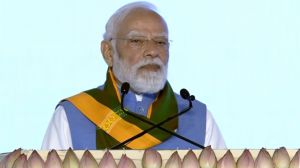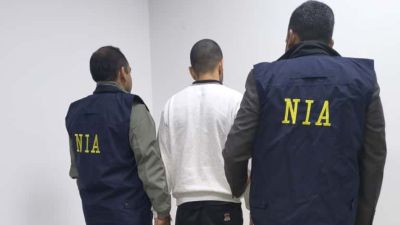Stay updated with the latest - Click here to follow us on Instagram
‘Can’t allow import of toxic toys’: Delhi HC rejects plea of toy traders
The court held that the pleas were nothing but "personal interest litigation" and that the Centre’s quality control order was issued to protect children from consuming toxic toys
 The Centre, on the other hand, argued that substandard toys are being imported into the country, and there are a large number of labs available for obtaining desired certificates to sell such toys. (Representational/ File)
The Centre, on the other hand, argued that substandard toys are being imported into the country, and there are a large number of labs available for obtaining desired certificates to sell such toys. (Representational/ File) The Delhi High Court, while hearing toy traders who challenged a quality control order requiring them to comply with certain standards for imported toys, said that the pleas were nothing but “personal interest litigation” and held that the order was issued in the larger public interest to protect children from consuming toxic toys.
A division bench of Chief Justice Satish Chandra Sharma and Justice Subramonium Prasad Thursday dismissed their plea. It observed, “this court has failed to understand as to how the public interest is involved in the present case. On the contrary, Order 2020 has been issued in the public interest as a large number of toys were found to have toxic material, and they were subject to various tests by the Quality Council of India.”
While terming the PILs frivolous, the court said that it cannot interfere with Order 2020.
The HC ruled that the traders “under the garb of PIL” wanted to import substandard toys in the country, and hence they cannot be permitted to violate the norms under the Toys (Quality Control) Order 2020 fixed by the central government.
The Order 2020 that was published on February 25, 2020 came into effect from September 1, 2020. The court said that all manufacturers or importers hence had ample time to comply with the order.
“The intention of issuance of the Toy Quality Control Order is to protect the health and safety of children who are normal consumers of toy products,” the HC said and added that rule has been formulated in consultation with the Bureau of Indian Standards (BIS) in the interest of the safety of children.
The High Court was hearing a PIL challenging a ‘Toy Quality Control’ order or notification issued on February 25, 2020, by the Ministry of Commerce and Industries requiring associations importing toys to ensure that the goods comply with BIS (Conformity Regulations), 2018.
The traders’ associations argued that they had already “imported a large number of toys” and that they are unable to sell them as the notification makes it mandatory that the imported toys should conform to the BIS standards and the imported toys should qualify the parameters laid down under the quality control order.
They prayed that they be permitted to sell the toys imported prior to January 1, 2021, and the notification of February 25, 2020, should not come their way. They also sought compensation for stocks that were imported or manufactured prior to January 1, 2021.
The plea also sought quashing of the notification as unconstitutional as it prohibits selling or disposing of toys which do not conform to BIS standards, on the ground that it virtually wiped out millions of small toys makers from all over India, in order to give unjust market space to large and rich toys manufacturers.
The Centre, on the other hand, argued that substandard toys are being imported into the country, and there are a large number of labs available for obtaining desired certificates to sell such toys. Stressing that the Toy Quality Control Order was issued in larger public interest, the central government said that its action was to promote domestic industry under the National Action Plan for toys and to ensure that substandard toys containing toxic material are not imported.
The BIS argued that the Toy Quality Control order was challenged 15 months after it was issued and that to safeguard children below 14 years, various standards have been provided and the members of the petitioners’ associations were given an extension till January 1, 2021 for implementing the notification.
The HC said that the Centre had granted six months’ time to the toy industry before the order was implemented.
Perusing the documents, the court held that the Toy Quality Control Order was in larger public interest. The order made it mandatory for toy manufacturers to obtain a registration certificate under the Bureau of Indian Standards Act and its regulations.
The HC further said that the order was issued to ensure that children aged below 14 years are not exposed to toys containing toxic material and the order was issued in consultation with various stakeholders as well as in consultation with the BIS.







